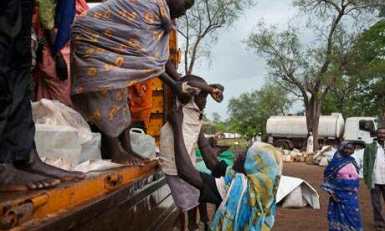SPLM-N calls for international probe on war crimes in Blue Nile
June 27, 2015 (KHARTOUM) -The rebel Sudan People’s Liberation Movement/North (SPLM-N) has revealed results of an investigation it carried out regarding government claims about human rights violations against civilians during recent battles in the Blue Nile state.

The report said the commission conducted interviews and contacted several sources in the SPLM-N controlled areas around Wad Abouk.
The head of the commission, Youssef al-Hadi Youssef, said their interviews with the commanders of the SPLM-N force heading towards Wad Abouk revealed that government militias in civilian clothes stationed inside the forest closed the road and shot at the SPLM-N force leading to exchange of fire between the two forces.
The commission’s report disclosed that the SPLM-N forces entered Wad Abouk and seized control of the four military positions without resistance following the escape of the government troops. It further said that the residents were not subjected to any harm.
According to testimonies heard by the commission, heated arguments took place between the SPLM-N commanders and several groups of residence to assure them of their mission and to exchange information and reveal atrocities committed by the regime in other areas in the Blue Nile.
Youssef said their interviews with the SPLM-M fighters and civilians who fled the area, besides contacts with sources in the government controlled areas in the Blue Nile confirmed that SPLM-N forces withdrew from Wad Abouk following intensive aerial bombing and shelling inside the town in order to avoid large casualties among civilians.
“In spite of the SPLM-N’s withdrawal from the town [Wad Abouk], the arbitrary aerial bombing and shelling continued inside the town,” the rebel official added.
The head of the commission also stressed they received testimonies regarding the escape of civilians from Wad Abouk in all directions for fear of the government aerial bombing particularly after rapid fires caught in houses that are built of local materials.
The report of the fact-finding commission also emphasized that the aerial bombing killed and injured large numbers of civilians besides destroying houses, commercial market, water stations, mosques and other private property.
It concluded that the government army and militia were not keen about the safety and security of the civilians and their property, saying they built four camps inside the town and around civilians houses and used them as human shields.
The commission also stressed that the government authorities recruited militias from nomadic tribes in the area and used them as sources and confrontation line against the SPLM-N.
Blue Nile and neighbouring South Kordofan state have been the scene of violent conflict between the SPLM-N and Sudanese army since 2011.
RECOMMENDATIONS OF THE COMMISSION
The commission recommended formation of an independent international fact-finding committee to investigate atrocities and crimes which took place during the Wad Abouk battle and to pay a field visit to see the impact of aerial bombing and artillery shelling on civilians.
It also called on the concerned United Nations agencies and the independent human rights groups to visit the area and meet the civilian victims of the atrocities.
The commission demanded establishing a mechanism to ensure that government army and militia camps are built away from civilian residential sites, calling for launching regional and international campaigns to stop the government aerial bombing against civilians and their property.
It further urged for establishing a mechanism for monitoring and identifying safe corridors for the cattle herders in order to ensure they are not being exploited in the political conflict and being used as militias through religious and tribal mobilization.
The authorities refuse to allow humanitarian access to the rebel held areas in the Blue Nile arguing such assistance would benefit to the rebel fighters also.
Observers say hopes are slim for a cessation of hostilities or a humanitarian truce in the region during the next months, as the African Union mediators failed to bring the warring parties to sign a framework agreement last November.
(ST)
